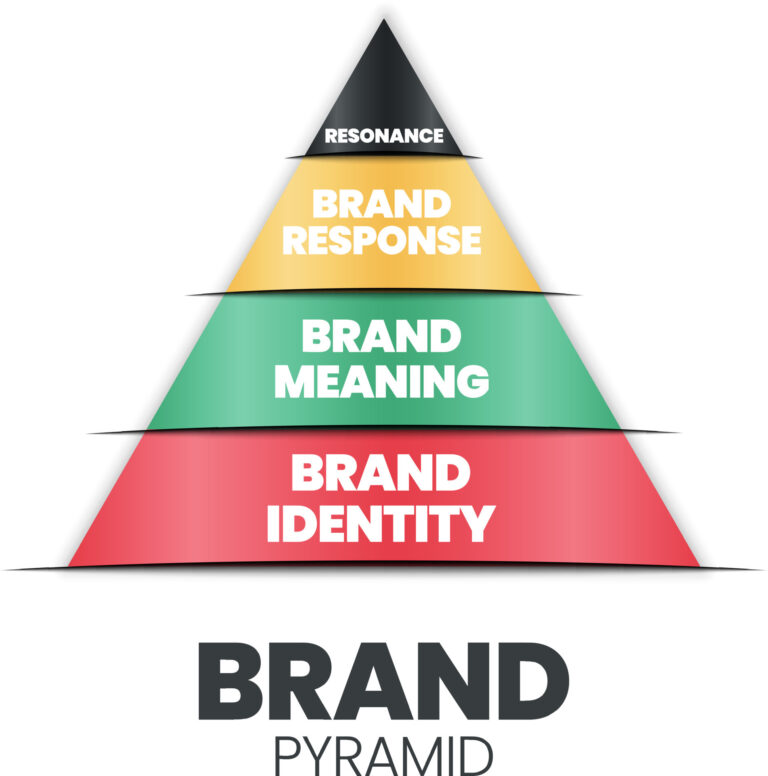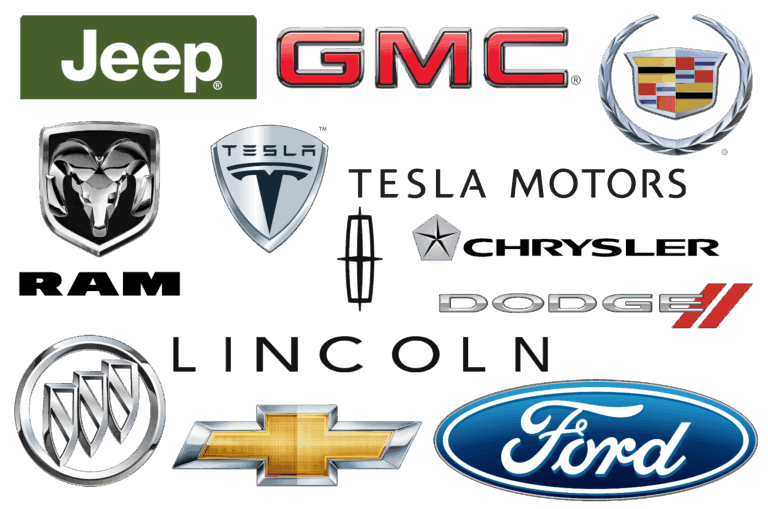Car Battery Brands: Your Comprehensive Guide to Powering Your Ride
Car Battery Brands: Your Comprehensive Guide to Powering Your Ride cars.truckstrend.com
The humble car battery, often overlooked, is the silent powerhouse that brings your vehicle to life. It’s the critical component that provides the initial surge of electricity to crank the engine, and then supports the vehicle’s electrical systems when the engine isn’t running or when the alternator isn’t keeping up. But not all batteries are created equal, and the brand behind the battery can significantly impact its performance, longevity, and reliability. Understanding car battery brands goes beyond just picking a name; it’s about making an informed decision that ensures dependable starts, consistent power, and peace of mind on the road.
This comprehensive guide will delve into the world of car battery brands, exploring what makes them tick, how to choose the right one for your needs, and the top players in the market that power millions of vehicles worldwide.
Car Battery Brands: Your Comprehensive Guide to Powering Your Ride
Why Brand Matters: The Core of Reliability and Performance
At its core, a car battery is a chemical device that converts chemical energy into electrical energy. While the fundamental principle remains the same, the quality of materials, manufacturing processes, research and development, and customer support can vary significantly between brands. Choosing a reputable car battery brand offers several key benefits:
- Consistent Quality and Performance: Established brands invest heavily in quality control, ensuring their batteries meet stringent performance standards, offering reliable cold cranking amps (CCA) and reserve capacity (RC).
- Durability and Longevity: Higher quality materials and robust construction mean better resistance to vibrations, extreme temperatures, and general wear and tear, leading to a longer lifespan.
- Advanced Technology: Leading brands often pioneer new technologies like Enhanced Flooded Batteries (EFB) or Absorbent Glass Mat (AGM) designs, offering superior performance for modern vehicles with higher electrical demands.
- Warranty and Support: Reputable brands stand behind their products with comprehensive warranties and accessible customer service, providing peace of mind in case of an issue.
- Vehicle Compatibility: Top brands offer a wide range of battery sizes and types, ensuring a perfect fit and optimal performance for virtually any make and model.

Understanding Car Battery Types and Their Brands
Before diving into specific brands, it’s crucial to understand the main types of car batteries available, as certain brands specialize or excel in particular technologies.
- Flooded Lead-Acid Batteries (SLA/Wet Cell): These are the most common and traditional car batteries. They contain a liquid electrolyte solution that covers lead plates. They are generally the most affordable but require occasional maintenance (checking electrolyte levels in some designs) and are sensitive to vibration and deep discharge.

- Commonly offered by: Interstate, EverStart, ACDelco, Exide, DieHard.
- Absorbent Glass Mat (AGM) Batteries: In AGM batteries, the electrolyte is absorbed into fiberglass mats between the plates. This design makes them spill-proof, vibration-resistant, and capable of handling deeper discharges and faster recharges. They are ideal for vehicles with start-stop systems and high electrical demands.
- Commonly offered by: Optima, Odyssey, ACDelco (professional series), Bosch, DieHard (Platinum/AGM series), Interstate (MTZ series).

- Gel Cell Batteries: Similar to AGM, gel batteries use a silica-type gel to suspend the electrolyte. They are extremely resistant to vibration and can handle deep discharges very well. However, they are more sensitive to overcharging and typically have lower CCA ratings than AGM or flooded batteries of the same size. They are less common for general automotive use but found in specific applications.
- Less common for cars, but some specialized brands or applications might use them.
Key Factors in Choosing a Car Battery Brand and Model
Beyond just the brand name, several technical specifications and considerations are paramount when selecting a car battery:
- Group Size: This refers to the battery’s physical dimensions (length, width, height) and terminal configuration. Your vehicle’s manufacturer specifies the correct group size. Always match this.
- Cold Cranking Amps (CCA): CCA indicates the battery’s ability to start an engine in cold temperatures. It’s the number of amperes a battery can deliver at 0°F (-18°C) for 30 seconds while maintaining at least 1.2 volts per cell. A higher CCA is generally better, especially in colder climates.
- Reserve Capacity (RC): RC measures how long a battery can power essential accessories if the alternator fails. It’s the number of minutes a battery can deliver 25 amps at 80°F (27°C) before its voltage drops below 10.5 volts. A higher RC means more time to get help.
- Warranty: Pay attention to the warranty period (free replacement and pro-rata) offered by the brand. A longer warranty often indicates greater confidence in product quality.
- Climate: In hot climates, batteries tend to degrade faster. Some brands offer batteries designed with enhanced heat resistance. In cold climates, high CCA is crucial.
- Vehicle Electrical Demands: Modern cars with numerous electronic features, infotainment systems, and start-stop technology require batteries with higher RC and often AGM technology to handle the increased cycling and power demands.
- Reputation and Reviews: Research online reviews and ask mechanics or fellow car enthusiasts for their experiences with different brands.
Top Car Battery Brands You Should Know
The car battery market is dominated by a few major manufacturers, who often produce batteries for various brands, including private labels. However, the brand name often signifies specific quality control, R&D, and warranty standards. Here are some of the most recognized and respected car battery brands:
-
Interstate Batteries:
- Overview: One of the most recognizable names in North America, Interstate has a reputation for reliable, long-lasting batteries. They are widely distributed through dealerships, independent garages, and retail chains.
- Specialty: Known for their broad range of flooded lead-acid batteries for various applications, as well as their newer AGM (MTZ) series.
- Pros: Excellent reputation for reliability, widespread availability, strong warranty, good performance in various climates.
- Cons: Can be on the pricier side for their premium lines.
-
Optima Batteries (Johnson Controls/Clarios):
- Overview: Famous for their unique SpiralCell Technology, Optima batteries are easily identified by their colored tops (RedTop, YellowTop, BlueTop). They are premium batteries designed for high performance and demanding applications.
- Specialty: Primarily known for their AGM batteries with superior vibration resistance, deep cycling capabilities (YellowTop, BlueTop), and high cranking power (RedTop).
- Pros: Extremely durable, excellent deep cycle performance, high CCA, leak-proof, long lifespan, ideal for modified vehicles or those with high electrical loads.
- Cons: Premium price point, specific fitment for some vehicles due to unique shape.
-
ACDelco (General Motors Brand):
- Overview: While primarily associated with GM vehicles, ACDelco batteries are widely available for all makes and models. They offer a range of batteries from standard to professional-grade AGM.
- Specialty: Reliable OEM-quality batteries, offering a good balance of performance and value across their various lines (Advantage, Professional, Gold).
- Pros: Good reliability, wide availability, often a solid choice for direct OEM replacement, decent warranty.
- Cons: Performance can vary between their budget and premium lines.
-
Bosch:
- Overview: A global automotive technology giant, Bosch produces a wide array of automotive components, including high-quality batteries.
- Specialty: Known for their robust S-series batteries (S3, S4, S5, S6 AGM) designed for modern vehicles, including those with start-stop technology. They emphasize high CCA and consistent power delivery.
- Pros: German engineering quality, excellent performance, good lifespan, suitable for European vehicles, strong reputation.
- Cons: Can be more expensive, availability might be less universal than some US-centric brands.
-
DieHard (Advance Auto Parts/AutoZone/O’Reilly):
- Overview: A legendary brand originally from Sears, DieHard batteries are now widely available through major auto parts retailers. They offer standard, Gold, and Platinum (AGM) lines.
- Specialty: Their Platinum line, often manufactured by Odyssey (EnerSys), is highly regarded for its robust AGM technology, deep cycling, and high CCA.
- Pros: Strong brand recognition, wide range of options, good warranties, Platinum series offers premium performance.
- Cons: Quality can vary between their standard and premium lines, as manufacturing partners have changed over time.
-
EverStart (Walmart):
- Overview: Walmart’s private label battery brand, manufactured by major battery companies like Johnson Controls/Clarios.
- Specialty: Known for offering excellent value and widespread availability. They provide standard flooded and AGM options.
- Pros: Highly affordable, convenient to purchase, decent performance for the price, solid warranty for a budget brand.
- Cons: May not offer the absolute peak performance or longevity of premium brands, but excellent for everyday use.
-
Exide:
- Overview: One of the world’s largest battery manufacturers, Exide produces batteries for various applications, including automotive, industrial, and marine.
- Specialty: Offers a wide range of flooded, AGM, and EFB batteries, catering to diverse vehicle needs and budgets.
- Pros: Global presence, diverse product line, good quality for the price, often an OEM supplier for European and Asian car manufacturers.
- Cons: Brand recognition in the consumer market might be less prominent than some competitors in certain regions.
-
Odyssey (EnerSys):
- Overview: Often considered a top-tier, heavy-duty battery brand, Odyssey batteries are built by EnerSys, a leading industrial battery manufacturer.
- Specialty: Known for extreme durability, high CCA, and exceptional deep cycling capabilities, often used in performance, off-road, and commercial vehicles. Their batteries feature Thin Plate Pure Lead (TPPL) technology.
- Pros: Outstanding performance, incredible lifespan, extreme vibration resistance, fast recharging, military-grade construction.
- Cons: Very expensive, often overkill for standard passenger vehicles.
Maintaining Your Car Battery: Tips for Longevity
Regardless of the brand you choose, proper maintenance can significantly extend your battery’s life:
- Keep it Clean: Regularly clean battery terminals to prevent corrosion, which can impede current flow. Use a wire brush and a baking soda/water solution.
- Check Connections: Ensure battery terminals are tight and secure.
- Monitor Voltage: Use a multimeter to check your battery’s voltage periodically. A fully charged battery should read around 12.6-12.8 volts.
- Avoid Deep Discharges: Try not to drain your battery completely. This stresses the battery and reduces its lifespan.
- Regular Driving: Short trips don’t allow the alternator to fully recharge the battery. Take longer drives periodically.
- Use a Trickle Charger/Maintainer: If your car sits for extended periods, a smart charger can keep the battery topped up without overcharging.
- Insulate in Extreme Climates: In very hot or cold conditions, consider a battery blanket or thermal wrap to protect it.
Navigating Challenges: Counterfeits and Warranty Claims
While less common with car batteries than with other electronics, counterfeit batteries can exist. Always purchase from reputable retailers, authorized dealers, or well-known auto parts stores to avoid fake products.
When it comes to warranty claims, keep your receipt and proof of purchase. Understand the warranty terms (e.g., free replacement period vs. pro-rata period). A dead battery isn’t always a warranty issue; it could be due to a faulty alternator or parasitic drain. Most reputable brands will test the battery thoroughly before honoring a claim.
Car Battery Brands: Representative Price Table
It’s important to note that actual prices can vary significantly based on battery group size, CCA rating, type (flooded, AGM), retailer, promotions, and geographical location. This table provides representative estimated price ranges for common battery types from popular brands.
| Brand Name | Typical Battery Type(s) | Common CCA Range | Estimated Price Range (USD)* | Key Feature/Notes |
|---|---|---|---|---|
| Interstate | Flooded, AGM (MTZ) | 500-1000 | $120 – $300 | Widely available, strong reputation for reliability. |
| Optima | AGM (RedTop, YellowTop, BlueTop) | 720-900 | $200 – $380 | SpiralCell design, high performance, vibration resistant, deep cycle (Yellow/Blue). |
| ACDelco | Flooded, AGM (Professional) | 500-850 | $100 – $280 | OEM quality, good balance of price and performance. |
| Bosch | Flooded, AGM (S3-S6 series) | 550-950 | $130 – $320 | German engineering, robust, good for modern vehicles. |
| DieHard | Flooded, AGM (Platinum) | 500-1000 | $110 – $350 | Iconic brand, Platinum (AGM) offers premium performance. |
| EverStart | Flooded, AGM | 500-800 | $90 – $200 | Walmart private label, excellent value, convenient. |
| Exide | Flooded, AGM, EFB | 500-900 | $100 – $250 | Global manufacturer, diverse range, good for various applications. |
| Odyssey | AGM (TPPL) | 700-1200 | $250 – $500+ | Premium, extreme durability, high CCA, deep cycle, long lifespan. |
*Prices are estimates and can vary based on specific model, retailer, and regional factors. Installation may be extra.
Frequently Asked Questions (FAQ) about Car Battery Brands
Q1: How often should I replace my car battery?
A1: Typically, a car battery lasts between 3-5 years, but this can vary greatly depending on climate, driving habits, and battery type. Extreme temperatures (hot or cold) and frequent short trips can shorten its life.
Q2: What does "CCA" mean, and how important is it?
A2: CCA stands for Cold Cranking Amps. It’s a crucial rating indicating how much power your battery can deliver to start your engine in cold weather. A higher CCA is essential, especially if you live in a cold climate, as engine oil thickens and battery power decreases when temperatures drop.
Q3: Can I use a different brand of battery than the original one in my car?
A3: Absolutely. As long as the replacement battery matches your car’s required group size, CCA, and ideally, the battery type (e.g., if your car came with an AGM, replace it with an AGM), you can use any reputable brand.
Q4: Is a more expensive battery always better?
A4: Not always, but often. More expensive batteries typically use higher-quality materials, more advanced technology (like AGM), and come with better warranties. While a budget battery might suffice for basic needs, a premium battery offers better performance, longevity, and reliability, especially for modern vehicles with high electrical demands.
Q5: What’s the difference between a starting battery and a deep cycle battery?
A5: A starting battery (like most car batteries) is designed to deliver a large burst of power for a short period to crank the engine. A deep cycle battery is designed to provide a steady amount of power over a long period and can be repeatedly discharged and recharged without damage. Some batteries (like Optima YellowTop or Odyssey) are "dual-purpose," combining both capabilities.
Q6: Can I jump-start my car with any battery?
A6: Yes, you can jump-start your car using another car’s battery or a portable jump starter. However, always follow the correct procedure (positive to positive, negative to ground) to avoid damage to either vehicle’s electrical system or the battery itself. Be especially careful when jump-starting an AGM battery, as some manufacturers recommend specific procedures.
Conclusion
The car battery, though often out of sight, is the literal spark of your vehicle’s existence. Choosing the right car battery brand is a decision that impacts not only your car’s immediate reliability but also its long-term performance and your peace of mind. By understanding the different types of batteries, key specifications like CCA and RC, and the reputations of leading brands like Interstate, Optima, ACDelco, and DieHard, you empower yourself to make an informed choice.
Invest in a quality battery from a reputable brand, maintain it diligently, and you’ll ensure reliable starts and consistent power, keeping you on the road and your automotive adventures alive. Don’t let a dead battery be the end of your journey; let a well-chosen one be the reliable beginning of many more.




